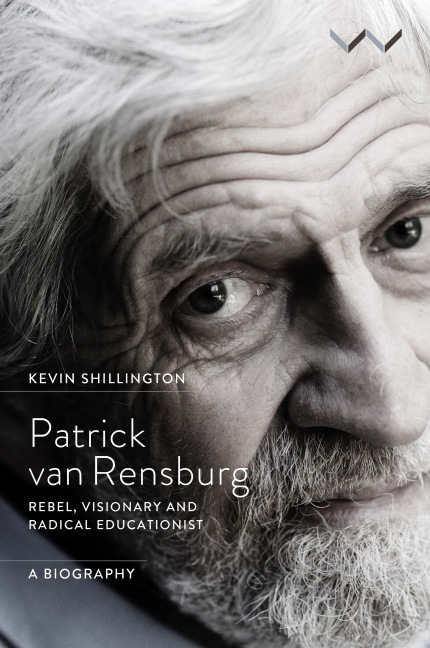Book contents
- Frontmatter
- Dedication
- Contents
- Acknowledgements
- Abbreviations and Acronyms
- List of Illustrations
- Maps
- Introduction
- 1 Origins and Identity in South Africa
- 2 An Anglophone South African, 1936–1948
- 3 The Making of an Afrikaner, 1949–1953
- 4 Diplomat and Rebel, 1953–1957
- 5 Anti-Apartheid Activist, 1957–1959
- 6 Boycott, 1959–1960
- 7 Into Exile, 1960–1961
- 8 Return to Africa, 1961–1962
- 9 The Founding of Swaneng Hill School, 1962–1963
- 10 Challenging ‘The Ladder to Privilege’, 1963–1965
- 11 The Alternative Educationist, 1965–1967
- 12 Expansion and Replication, 1967–1969
- 13 Time of Crisis, 1969–1971
- 14 Education with Production, the 1970s
- 15 Foundation for Education with Production and Spreading the Word, the 1980s
- 16 Education with Production and South Africa, the 1990s
- 17 Return to Botswana
- Epilogue
- Notes
- Bibliography
- Index
17 - Return to Botswana
Published online by Cambridge University Press: 10 September 2020
- Frontmatter
- Dedication
- Contents
- Acknowledgements
- Abbreviations and Acronyms
- List of Illustrations
- Maps
- Introduction
- 1 Origins and Identity in South Africa
- 2 An Anglophone South African, 1936–1948
- 3 The Making of an Afrikaner, 1949–1953
- 4 Diplomat and Rebel, 1953–1957
- 5 Anti-Apartheid Activist, 1957–1959
- 6 Boycott, 1959–1960
- 7 Into Exile, 1960–1961
- 8 Return to Africa, 1961–1962
- 9 The Founding of Swaneng Hill School, 1962–1963
- 10 Challenging ‘The Ladder to Privilege’, 1963–1965
- 11 The Alternative Educationist, 1965–1967
- 12 Expansion and Replication, 1967–1969
- 13 Time of Crisis, 1969–1971
- 14 Education with Production, the 1970s
- 15 Foundation for Education with Production and Spreading the Word, the 1980s
- 16 Education with Production and South Africa, the 1990s
- 17 Return to Botswana
- Epilogue
- Notes
- Bibliography
- Index
Summary
During the final decade of apartheid in South Africa, Botswana was a beneficiary of a significant amount of direct investment by multinational manufacturing corporations, including South African-based companies, bringing to the country productive activities as diverse as vehicle assembly and the production of spaghetti.
Since it was in a customs union with South Africa, investment in Botswana was a safe hedge against the possibility of full-blown economic sanctions against the apartheid regime. The truth of this cynical corporate viewpoint was revealed by the speed with which this investment was shifted to South Africa the moment it became clear that apartheid was collapsing.
With the accompanying rise in levels of unemployment by the mid- 1990s, the Botswana government's reliance on foreign investment to drive the diversification of its economy could be seen to be failing. This was reflected in the results of the general election of October 1994 that saw a surge in support for the opposition Botswana National Front (BNF), which tripled its number of Parliament members – to 13 of 40 – taking all four seats in Gaborone.
Against this political background, Patrick's refocus on Botswana could be said to have started in February 1995 with a long article in Mmegi, the independent weekly newspaper he had re-founded in 1984. The article, highly critical of the general trend of government policy, was written in response to President Quett Masire's address at the opening of Parliament.
Politically, the government was, for once, looking vulnerable, and now seemed a good time to put forward alternative economic and development strategies – as much to push the opposition into forming a coherent programme for government as it was to prompt the government into a change of direction.
In his speech Masire recognised the slowdown in the country's economic growth but, according to Patrick, he failed to recognise its root causes: the government was too heavily involved in partnerships with transnational corporations whose investment priority was minimal investment for maximum profit. In particular, there was a lack of balance in rural development between enrichment of a few (mostly large-scale cattle ranchers) and rural stagnation for the majority, leading to rural–urban migration and environmental degradation.
- Type
- Chapter
- Information
- Patrick van RensburgRebel, Visionary and Radical Educationist, a Biography, pp. 285 - 300Publisher: Wits University PressPrint publication year: 2020

